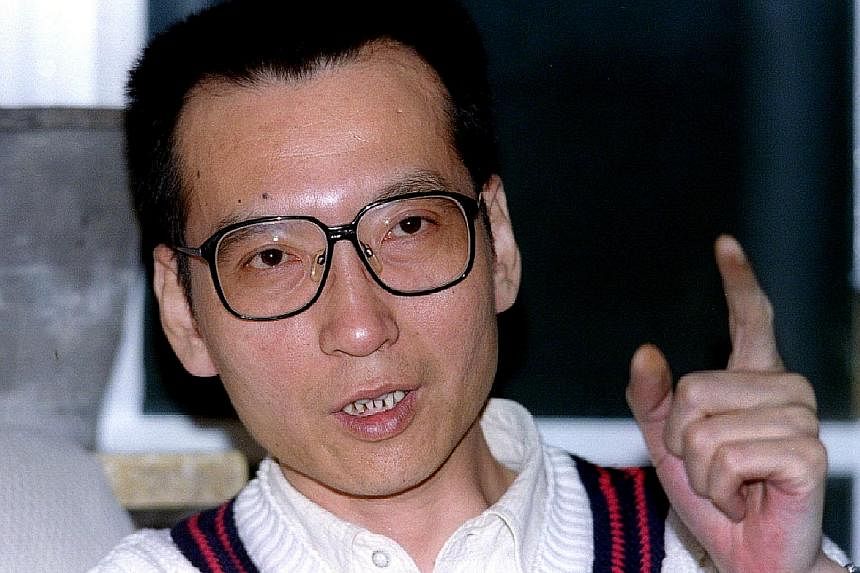Chinese Nobel Peace laureate Liu Xiaobo died yesterday of liver cancer, ending a life dedicated to championing political reform and liberal democracy for his country.
While many of the current generation of young Chinese people may not have heard of him and his "great contribution" to China, "history will not forget him", said prominent Chinese social commentator Wu Jiaxiang.
The 61-year-old activist, who was serving an 11-year jail term for subversion of the state, was diagnosed with terminal liver cancer in May, placed on medical parole last month and moved to a hospital in Shenyang, in north-eastern Liaoning province.
His wife Liu Xia was allowed to be by his side but his friends were barred from visiting him, according to media reports.
Many of his supporters and some foreign governments had urged the Chinese government to allow him to seek treatment overseas.
An American oncologist and a German doctor specialising in pancreatic surgery examined him last week, and said that they believed Mr Liu could be safely evacuated from China.
But Beijing rejected foreign calls for his release. Foreign Ministry spokesman Geng Shuang told a regular press conference yesterday: "We hope relevant countries can respect China's judicial sovereignty and refrain from interfering in China's internal affairs under the pretext of an individual case."
After news of Mr Liu's death broke, Ms Berit Reiss-Andersen, leader of the Norwegian Nobel Committee, said the Chinese government bore heavy responsibility for his "premature death".
"We find it deeply disturbing that Liu Xiaobo was not transferred to a facility where he could receive adequate medical treatment before he became terminally ill," she told Reuters.
German Justice Minister Heiko Mass wrote on Twitter: "His non-violent resistance made him a hero in the battle for democracy and human rights. RIP."
A literary critic and political activist, Mr Liu was jailed in 1989 for taking part in the Tiananmen pro- democracy protests that year. He was released in 1991 but detained again in 1995 for calling for political reform on the sixth anniversary of the Tiananmen incident.
Released in February 1996, he was sent to a labour camp for three years in October that year for a declaration on the Taiwan issue.
He received his current sentence in 2009 for his part in the writing of Charter 08, a manifesto released in December 2008 calling for freedom of expression and an end to one- party rule, among other things.
Hong Kong-based analyst Willy Lam noted that "because of the thorough, repressive system, his influence has been fading, particularly among younger people under 30".
But among intellectuals in China, "he will be a beacon of light in tough times", he said.

